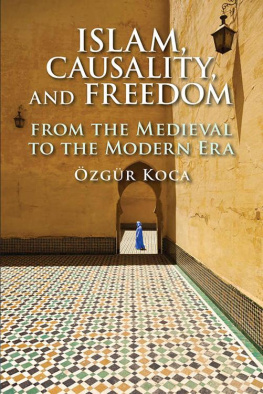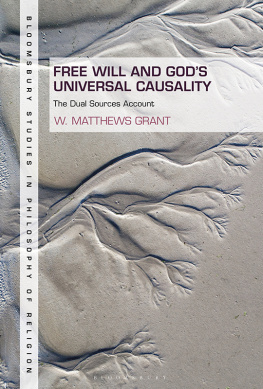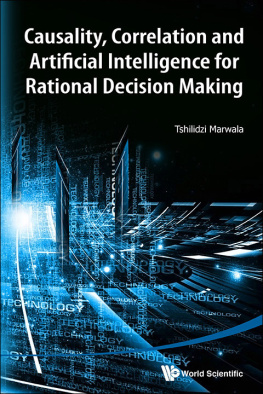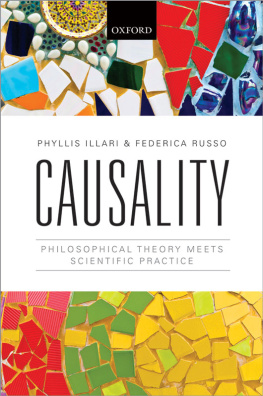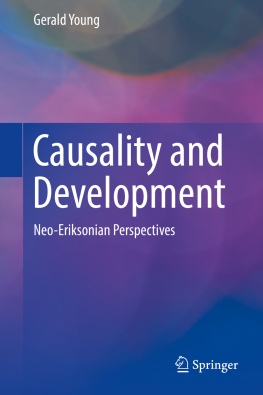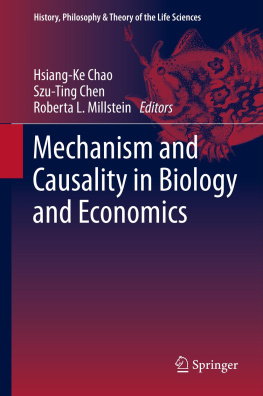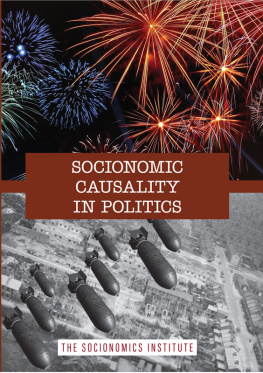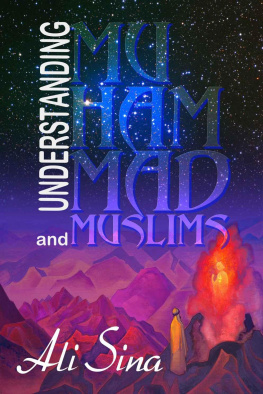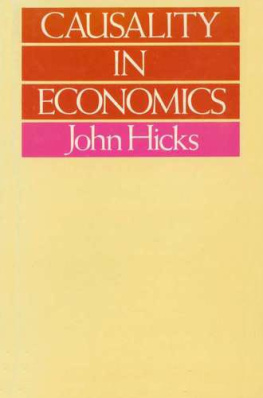Islam, Causality, and Freedom
In this volume, zgr Koca offers a comprehensive survey of Islamic accounts of causality and freedom from the medieval to the modern era. Based on this examination, Koca identifies and explores some of the major currents in the debate on casuality and freedom. He also discusses the possible implications of Muslim perspectives on causality for contemporary debates on religion and science. The book is an invitation for Muslims and non-Muslims to explore a rich, but largely forgotten, aspect of Islamic intellectual history.
zgr Koca is an assistant professor of Islamic Studies and Philosophy at Bayan Claremont Islamic Graduate School. His research focus is on Islamic philosophy, theology, Sufism, and discussion of science and religion.
Islam, Causality, and Freedom
From the Medieval to the Modern Era
zgr Koca
Bayan Claremont Islamic Graduate School

University Printing House, Cambridge CB 2 8 BS , United Kingdom
One Liberty Plaza, 20th Floor, New York, NY 10006, USA
477 Williamstown Road, Port Melbourne, VIC 3207, Australia
314321, 3rd Floor, Plot 3, Splendor Forum, Jasola District Centre, New Delhi 110025, India
79 Anson Road, #0604/06, Singapore 079906
Cambridge University Press is part of the University of Cambridge.
It furthers the Universitys mission by disseminating knowledge in the pursuit of education, learning, and research at the highest international levels of excellence.
www.cambridge.org
Information on this title: www.cambridge.org/9781108496346
DOI: 10.1017/9781108866965
Cambridge University Press 2020
This publication is in copyright. Subject to statutory exception and to the provisions of relevant collective licensing agreements, no reproduction of any part may take place without the written permission of Cambridge University Press.
First published 2020
Printed in the United Kingdom by TJ International Ltd, Padstow Cornwall
A catalogue record for this publication is available from the British Library.
Library of Congress Cataloging-in-Publication Data
Names : Koca, Ozgur, 1977 author.
Title : Islam, causality, and freedom : from the medieval to the modern era / Ozgur Koca.
Description : 1. | New York : Cambridge University Press, 2020. | Includes bibliographical references and index.
Identifiers: LCCN 2019056223 (print) | LCCN 2019056224 (ebook) | ISBN 9781108496346 (hardback) | ISBN 9781108791977 (paperback) | ISBN 9781108866965 (epub)
Subjects: LCSH : Islamic philosophy. | Cosmology. | Causality (Physics) | Causation (Islamic law) | LibertyReligious aspectsIslam.
Classification: LCC B 745. C 6 K 63 2020 (print) | LCC B 745. C 6 (ebook) | DDC 122.088/297dc23
LC record available at https://lccn.loc.gov/2019056223
LC ebook record available at https://lccn.loc.gov/2019056224
ISBN 978-1-108-49634-6 Hardback
Cambridge University Press has no responsibility for the persistence or accuracy of URLs for external or third-party internet websites referred to in this publication and does not guarantee that any content on such websites is, or will remain, accurate or appropriate.
To my loving and supportive wife Ayin and to my three wonderful children, Berrin, Reyyan, and Alp Eren.
Contents
Conventions
I have simplified Arabic names by removing the definite article (for example Ashar for al-Ashar, Ghazl for al-Ghazl). Certain commonly used Arabic words that appear in Merriam-Websters dictionary have not been transliterated or italicized, such as Allah and hadith. I have preserved ayn and hamza , for example in Quran and sharia. However, I have removed initial hamza s (for example Islamiyyn for Islamiyyn ).
I use both my own and existing translations throughout this study. I have also modified some existing translations. These are indicated in the footnotes.
My transliteration of Arabic, Persian, and Turkish words is based on the chart developed by the International Journal of Middle East Studies . I have fully transliterated technical terms, Arabic book titles, and Arabic names with diacritical marks (macrons and dots). After introducing works in the footnotes, I refer to them by a single significant word in the title (for example Maqlt for Maqlt al-Islamiyyn wa-l-Ikhtilf al-Mualln or al-Milal for Kitb al-Milal wa-l-Nil ).
Said Nursis writings present a particular challenge for transliteration. Nursi wrote in Ottoman Turkish, which borrows extensively from Arabic and Persian and today is written in the Modern Turkish alphabet. To transliterate his works, I have used modern Turkish orthography. Moreover, despite the fact that modern Turkish orthography no longer includes hatted vowels (, , ), I have elected to use them, because it is quite common to see hatted vowels in Turkish texts written during the first half of the twentieth century, as is the case for Nursis writings. The following characters appear in the transliterations of this scholars writings.
c = j, as in joke
= ch, as in change
= unpronounced, elongates the preceding vowel
= as in io of action
= as in French peu
= sh, as in shark
= as in French rue
Acknowledgments
Research and rewriting for this book were accomplished over several years in the friendly environment of Bayan Islamic Graduate School; I am grateful to all of my colleagues at Bayan. I am especially indebted to Jihad Turk and Munir Shaikh who worked actively to provide me with the protected academic time and scholarly environment. I am honored to have had their competent assistance and enthusiastic support.
I would like to thank Professors Ahmet Kuru, Gkhan Back, Ahmad Alwishah, Zayn Kassam, Stefano Bigliardi, Nazif Muhtarolu, and Ensar Demirkan for their valuable help in the preparation of this book as well as their insightful comments and help during the preparation process of this book. My special thanks to Professor Philip Clayton. The value of his guidance, knowledge, and support has been immeasurable to my work. My deep gratitude to the personnel of the library at Claremont School of Theology: They have provided competent assistance and have promptly obtained sources I needed from different parts of the world. I am grateful to the anonymous readers of Cambridge University Press who read the manuscript very carefully and provided detailed and insightful comments.
Nobody has been more important to me than the members of my family in the pursuit of this project. My wife, Ayin Koca, is on every single page of this study; her love and patience permeate the whole work. Without her support and respect for my work, I would not be able to do anything an academic is expected to do. I will always remember her kindness and patience during my studies, as well as her dedication to our three wonderful children, Berrin, Reyyan, and Alp Eren.
Introduction
You threw not, when you threw.
(Quran 8:17)
Gods free will has given existence to our free will / His free will is like a rider beneath the dust / His free will creates our free will / His commands are founded upon a free will within us.
(Rm, Mathnaw , V. 30873038)
In this book, I examine different accounts of causality formulated by Muslim theologians, philosophers, and mystics. The book also includes examinations of how they established freedom in the created order as an extension of their perception of causality. Based on this examination, I identify and explore some of the major currents in the debate on causality and freedom. I also discuss the possible implications of Muslim perspectives on causality for contemporary debates over religion and science. The central figures examined in this book are early Mutazilite and Asharite theologians, Ibn Sn (9801037), Ab mid al-Ghazl (10581111), Shihb al-Dn Suhraward (11541191), Ibn Rushd (11261198), Fakhr al-Dn al-Rz (11491209), Muyiddn Ibn Arab (11651240), adraddn al-Qnaw (12101274), Dwd al-Qayar (12601350), al-Sayyd al-Sharf al-Jurjn (13401413), Mull adr (15711640), and Said Nursi (18771960).
Next page
